Molly Knight started off with a dream: to become a doctor and help children. But in college, as she progressed in her major, she couldn’t help but wonder if her calling was elsewhere. Making the switch from biology to journalism couldn’t have been easy, but Molly took the challenge head on—and carved her own path in the world of sports writing.
Like most new journalists, overworked and underpaid, Molly started her career by pursuing her writing however she could, taking freelancing jobs that paid next to nothing while bartending on the weekends. Eventually, with a few internships under her belt, she made some much-deserved progress—landing an ongoing gig at ESPN.
As a woman in a male-dominated industry, things weren’t always easy, and it took some time to score points with the all-star athletes she interviewed. But Molly refused to let others use “being a woman” as an excuse to hold her back. And she took her experiences in the industry even farther when she decided to reach a serious milestone in her career: publishing her first book.
Her journey has had its ups and downs, but by following her own advice, “just get started and don’t give up,” she’s reached a new level of success—in her own words and on her own terms.
Her Starting Point
You studied human biology at Stanford University with hopes of becoming a doctor. What made you decide to so drastically switch fields?
My senior year, I just couldn’t take another chemistry class. Usually when I had trouble with a subject, if I worked hard enough and put in the time, I’d eventually understand what was going on. Not so with chemistry. My brain just couldn’t process it. I really wanted to be a doctor so I could help people, particularly children, either through pediatrics or child psychiatry. But failing organic chemistry made me wonder if perhaps my aptitude was in something else.
Before landing as a contributing writer with ESPN, you worked in New York as a bartender and waitress to get by. How did you manage to make a living and keep writing? Did you have any free time?
Bartending can be quite lucrative! I had this job at a neighborhood bar [where I] worked Saturday and Sunday nights and usually made like $500 a week, which to a twenty-two year old is a lot of money.
I would write during the week. I lived in a shoebox and shopped at Forever 21 but still had enough money to go to the movies or a baseball game and basically just had the best time.
Alright, the question we're all wondering: how did you get your first paid writing assignments?
First, I applied for a summer internship I saw on Media Bistro for a business magazine about shopping centers and got it. Then I applied for a fall internship at a men’s magazine and got that. That place (which is now defunct) didn’t have the budget to pay real writers to do features so they let me write some, which was amazing.
[When] one of my editors there left, he went to ESPN and took me with him. But I kept having to bartend because I was making (no joke) $50 a week as an intern. So I basically worked 9am-7pm Monday through Friday at ESPN and then 9 pm to 4 am on Saturday and Sunday [at the bar].
When I started getting work for ESPN, it was slow at first. I think I made maybe $5000 freelancing for them the first year. Then it steadily increased from there. They were using me so much that they put me on contract three or four years after I started freelancing because it was cheaper for them (and more secure for me!).
Describe your thought process for a story. How do you outline and organize? Does the same apply to writing books?
I take a lot of notes as I go, but I write all at once. I have to kind of know how a story ends before I begin it.
That being said, I don’t always come up with the last line of a piece before I start—sometimes I figure out what a story is about while I’m writing it. This usually happens because I go back and listen to an interview and hear something I missed the first time, either because I wasn’t doing a very good job listening or because my brain was automatically omitting anything that didn’t “fit” with my pre-conceived idea of what the story was about.
For larger pieces, I definitely outline. My book was heavily outlined, first by chapter, then within each chapter. I had stacks of notebooks of material from two years of reporting, and I went through each one and typed everything up. [From there,] I moved each note into its specific chapter outline, and highlighted it in the original notebook when I found it a home.
The saddest part is flipping through those old notebooks and seeing great little nuggets that were never highlighted because I failed to find them a home in the book—so I don’t do that!

Her Big Break
In addition to writing for ESPN, your work has also appeared in The New York Times Magazine, Glamour, and Variety. What advice do you have for novice writers to get their work seen and published?
Each situation was different. The New York Times Magazine editor-in-chief (who I didn’t know) read one of my ESPN features and reached out to ask me if I wanted to write for him. It took me a year to gain the courage to pitch an idea. I started writing for Self because my story editor at the New York Times is married to an editor at Self and recommended me. For Glamour, my friend and I just happened to pitch a story cold. [Another] friend who I met through covering the Dodgers was an editor at Variety and tossed me some work. Everything comes through relationships.
You recently wrote a book called The Best Team that Money Can Buy: The Los Angeles Dodgers’ Wild Struggle to Build a Baseball Powerhouse. What made you want to write it?
I found these guys to be extraordinary, and that’s really what the book is about: extraordinary people in an extraordinary situation. It [also] helped that the guys approached me to do it and gave me incredible access.
These days you interview a lot of high-profile subjects like star athletes. How do you build trust? Have you ever faced any backlash from people who did not like what you wrote about them?
Trust takes years, honestly. You have to treat them like humans and be impeccable about keeping your word. I agonized over getting everything right. Someone may not like that I wrote the truth about certain situations, but none of the players ever denied a word of it. I’m really proud of that.
Many people don’t know what the process of writing a book entails. Can you walk us through the steps? Any advice for writers looking to publish?
I started formally reporting the book in the spring of 2013—but I really started three years before that. My agent sold the book in November of 2013. I spent the winter outlining and then began writing on April 1. I finished the first draft by February 1st [of 2015] and the final draft by May 1 or so. It was a crazy process.
I would recommend trying to write 500 words a day. It doesn’t sound like a lot, but it adds up pretty fast. Just get started and don’t give up.

Her Perspective
Until the '70s and '80s, women were not even allowed in locker rooms to interview male athletes. Have you experienced any sexism in your own career? Any times when being a woman in a male-dominated field actually worked to your advantage?
Earlier in my career, definitely. Guys would explain the simplest plays to me, either because they assumed I didn’t understand or they wanted to embarrass me. But it’s gotten a lot better now. When I started the players were all older than me, so I don’t know if they were also just condescending because of the age thing. Now that I’m interviewing guys from my generation and younger, there’s a lot more respect.
And yes, I would say being a woman has its advantages. The guys have no problem giving me their wives’ and mothers’ phone numbers. They don’t really like giving out those digits to my male colleagues.
What do you love most about writing? Are there some common misconceptions about being a professional sports writer?
It’s the way I express myself. I don’t know what I would do otherwise. [But] being a professional sportswriter is exhausting. People think you just show up for the games when the fans do. No.
For baseball games, we get there at 2:30 P.M. for a 7:00 P.M. start, then stay until 11:30 P.M. or so. Our social lives are kind of lame because that schedule includes Friday and Saturday nights. Sometimes you get Mondays or Thursdays off but never weekends.
Since blogs have become a thing, it’s hard for some readers to differentiate between someone blogging from home with no locker room access and someone who spends 60 hours a week at the ballpark talking to everyone. That’s frustrating. Sometimes I’ll tweet something based on what a player told me, and I’ll get people writing me back calling me a moron. It’s like, OK. What? This is straight from the horse’s mouth!
It can also be frustrating when I see stuff bashing "the media agenda," as if we all get together at summer camp each year and decide what to write. That couldn’t be further from the truth.
Reporters are cutthroat competitive—I’ve had friends break stories from the other side of a dinner table and not even tell me! The goal is always to write different things from your competitors. But if ten different writers are writing the same thing, it is most likely true—and not a media conspiracy. Sorry.
In retrospect, is there anything you wish you could re-write? What's the proudest moment of your career so far?
When I was twenty-one I reviewed CDs for an indie rock magazine. I got paid $5 per review. I was really snarky and could be quite critical. I wouldn’t do that anymore. I think it’s pretty awful to be a jerk about something someone poured their heart into.
The proudest moment of my career so far was making The New York Times Non-Fiction Best Seller list two weeks in a row! That is something I never thought would happen.
And finally, what do you wake up looking forward to? What's next for your career?
That’s a great question. I wake up being grateful that I woke up. I know how fortunate I am to be in great health because many people I love aren’t that lucky.
I will write more books. I just need to come up with an idea I can sit with for the next three years (or so) that I won’t get sick of...
You May Also Like
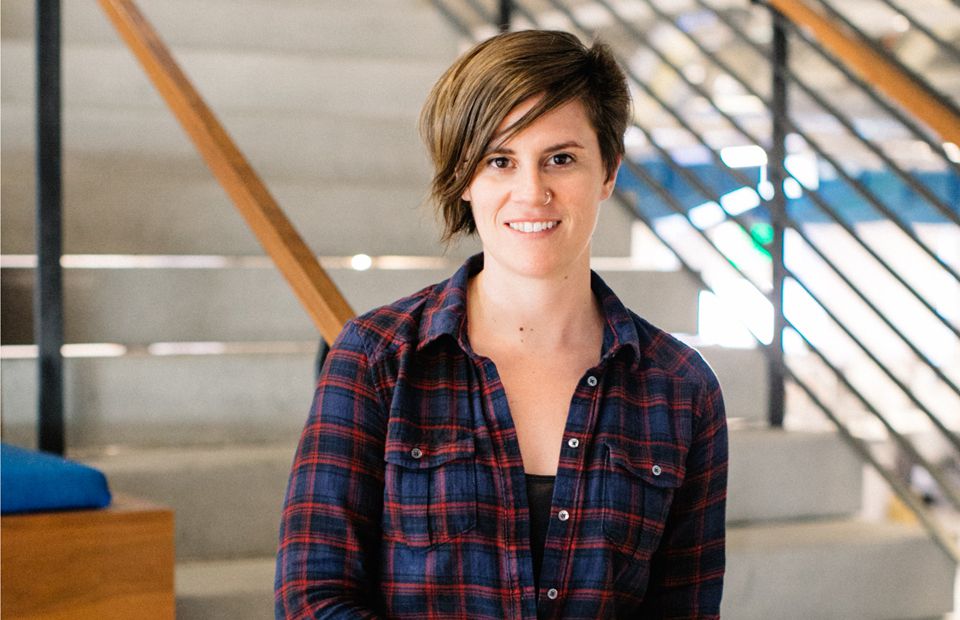
Media
How to Use Positive Reinforcement at Work—and Other Advice from a Pandora PM
"My advice to anyone who wants to get into product management is: check your ego at the door."
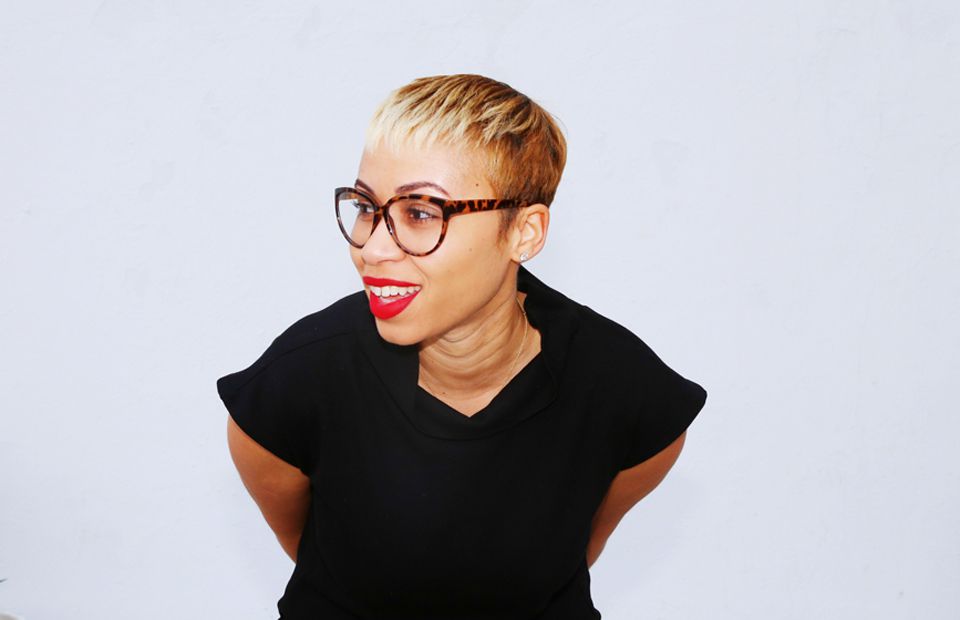
Media, Communications + Public Relations
How to Take Risks, Make a Switch, and Find a Career You Love—From a Woman Who's Done It 4 Times
Making your wildest dreams come true starts with understanding yourself—and Ahyiana Angel can help.
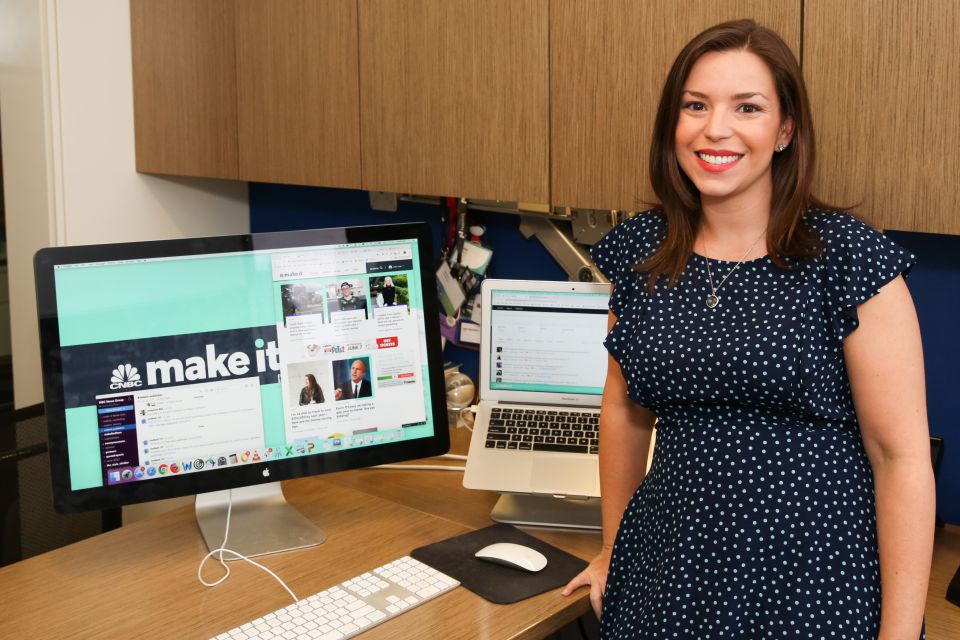
Communications + Public Relations
Creating Content That Empowers Audiences with CNBC's Digital VP and Managing Editor
This week, we interviewed Jenna Goudreau, the VP and managing editor of CNBC Digital. Let's learn how she keeps her powerhouse content creation machine going.
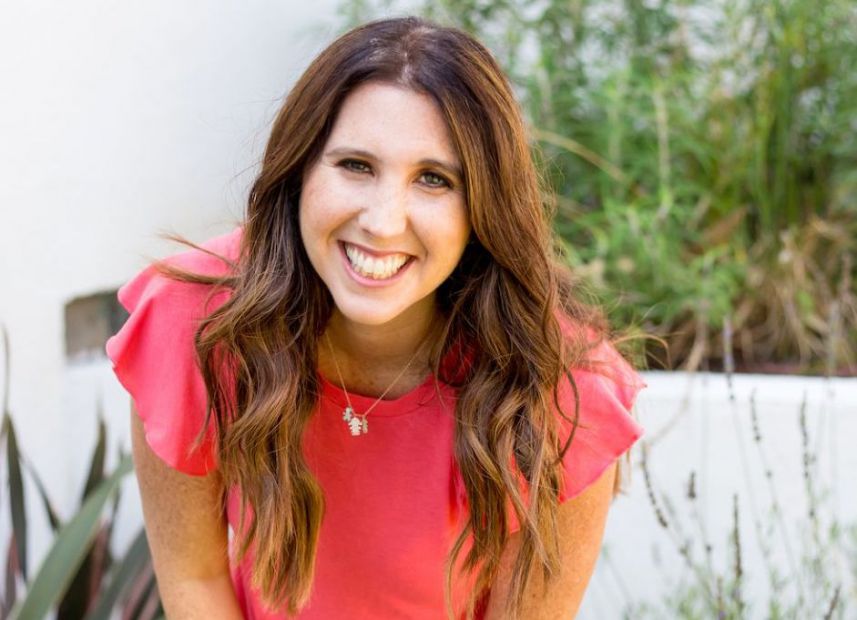
Entertainment
Working Creatively From Home with Cathy Heller
Cathy Heller is a singer, songwriter, entrepreneur, mother—and now, an author. Determined to lift others up to the "happiest versions of themselves," this queen of the hyphenated job title, leads by example. She shared how to build a fulfilling career in a creative field—all while working from home.
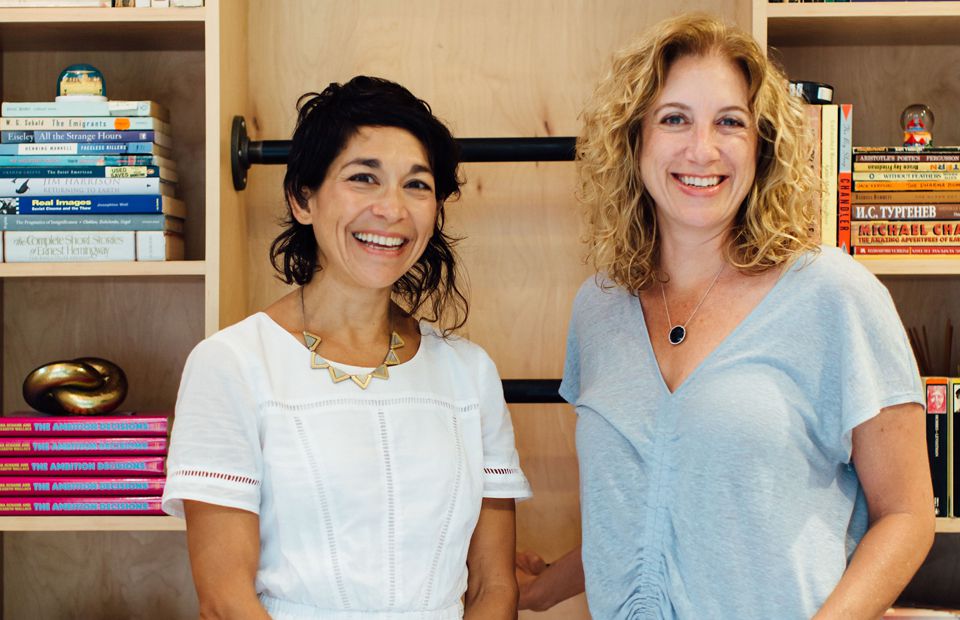
Media
Women, Work, and What It's Like to Write With Your Best Friend—From the Authors of The Ambition Decisions
"We should all give ourselves permission to challenge the things we think can’t be challenged."
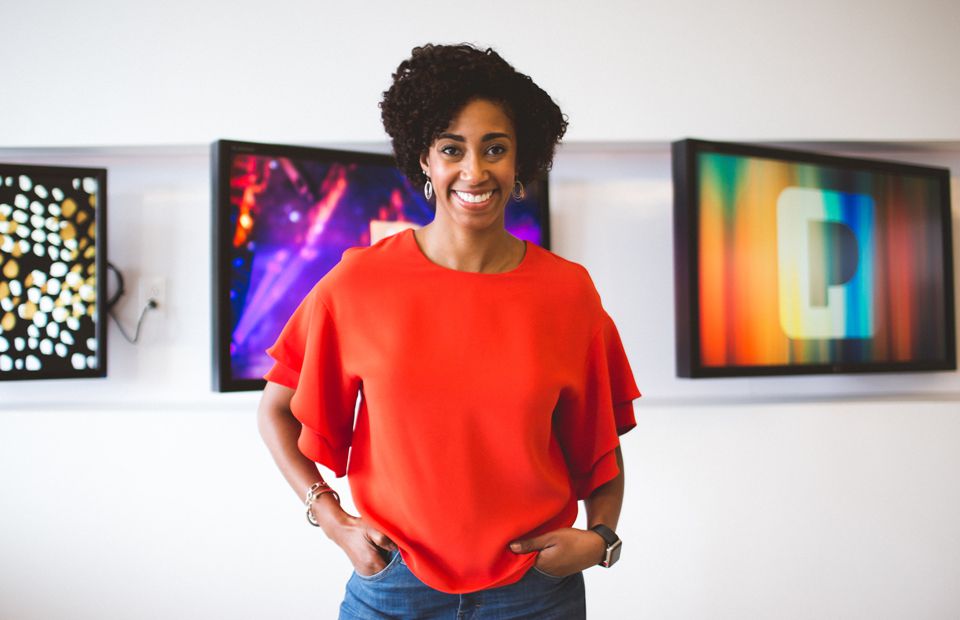
Media
A Director at Pandora on Staying Present, Celebrating Others, and Learning From Failure
"Share your wins, but most importantly, share what your growth areas are, share when you fail, share how you bounced back."
Get the Best Career Advice Delivered To Your Inbox
Join our newsletter to stay in the loop.
